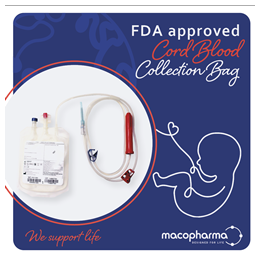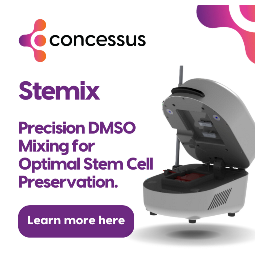Jste zde
Utah attempts to legalize placenta cell therapy
On 14 March 2024, the governor of Utah signed State Bill 199 (Utah S.B.199), titled “Placental Tissue Amendments” into law1. The general description of this law says, “This bill requires certain health care providers to provide certain disclosures when administering a treatment using placental stem cells; and creates a penalty for failing to provide the disclosures.” Based on the general description, this bill seems to be a routine patient protection measure that requires disclosures. But after defining a few terms of language, the bill delivers a bombshell (emphasis added):
“(2) A health care provider whose scope of practice includes the use of stem cell therapy may perform a stem cell therapy that is not approved by the United States Food and Drug Administration, if the health care provider provides the patient with the following written notice before performing the therapy:
THIS NOTICE MUST BE PROVIDED TO YOU UNDER UTAH LAW. This health care practitioner performs one or more stem cell therapies that have not yet been approved by the United States Food and Drug Administration. You are encouraged to consult with your primary care provider before undergoing a stem cell therapy."
Moreover, not all patients will receive a disclosure that they are getting a therapy that is not FDA approved. Section (6) of the bill provides an exemption for certain health care providers.
“(6) This section does not apply to:
- a health care provider who has obtained approval for an investigational new drug or device from the United States Food and Drug Administration for the use of human cells, tissues, or cellular or tissue-based products; or
- a health care provider who performs a stem cell therapy under an employment or other contract on behalf of an institution certified by any of the following:
(i) the Foundation for the Accreditation of Cellular Therapy;
(ii) the Blood and Marrow Transplant Clinical Trials Network;
(iii) the Association for the Advancement of Blood and Biotherapies; or
(iv) an entity with expertise regarding stem cell therapy as determined by the division.”
In practice, here is an example of how the law will work when it goes into effect 1 May 2024: Let’s say that an orthopedic doctor in Utah is injecting placenta cells into the knee joints of patients with arthritis. This is perfectly legal if the doctor is participating in a clinical trial with an investigational new drug application (IND). But if the doctor does not have an IND, under the federal FDA regulations this is illegal. Under the new Utah law, the doctor may give the treatment so long as the patient receives a disclosure. Moreover, if the doctor is somehow under contract with an institution, such as the supplier of the placenta cells, that is certified by one of the four listed agencies, then the doctor does not even have to provide the disclosure. This law is really designed to help doctors avoid disclosures!

Utah S.B.199 was drafted by a nurse that we will call “Ivy”. We have changed her name because she did not want to be interviewed for this article. Ivy used to work for CellSure, a combination cord blood and birth tissue biobank that operated in Salt Lake City. CellSure had a very novel business model: they would give parents a big discount on cord blood banking if the parents simultaneously donated their placenta2. At the time of their national launch in 2019, Parent’s Guide to Cord Blood Foundation wrote that this model would disrupt the perinatal banking industry2. Unfortunately, CellSure was a subsidiary of Predictive Biotech, a business group that ended up collapsing after allegations of widespread financial mis-management3. Despite the closure of CellSure, Ivy continued to seek ways to make the promise of placenta stem cells more available to patients in Utah. Then, during the COVID-19 pandemic, Ivy became very sick with a form of long COVID that caused chronic inflammation. She eventually recovered her health after treatments that calmed her over-active immune system. Inspired by her personal health struggles, Ivy drafted a bill that would provide state authorization for doctors in Utah that offer therapy with placental cells and other non-embryonic human cells and tissues.
Of course, there is a big leap from a nurse drafting a bill to having a legislature pass it into law, and that gap was bridged by lobbyists. The legislature timeline of Utah S.B.199 shows that it was passed very quickly; it was introduced on 5 Feb. 2024 and passed on 29 Feb4. It was not discussed in either the House or Senate committees on health and human services5,6. When Utah S.B.199 came up for a vote in the Utah Senate, sponsoring Senator Curtis S. Bramble said, “This is consistent with legislation that’s been run in a handful of other states. The potential for stem cell therapy with placental stem cells is incredible”7. At the final vote on the House floor, sponsoring Representative Katy Hall introduced the bill as follows: “This bill requires healthcare providers to require certain disclosures and consents when providing treatment with placental stem cells and other human tissue cells. This type of treatment is something that is already being done in the state – and this gives better transparency – um - it is also consistent with similar legislation in other states in this regard. And that’s the bill.”8. Utah S.B.199 passed with unanimous votes from all legislators present8.
Now that it is state law, Utah S.B.199 creates a precedent of a state attempting to legislate cell therapy in defiance of the federal FDA regulations. Contrary to the claims by the bill sponsors, there are no similar laws yet in any other states. By rubber stamping this bill without reviewing it carefully, the Utah state legislature seems to have unwittingly set up a showdown with federal authorities. While the state of Utah does have a track record of diverging from federal policies, they usually do so intentionally, not accidentally9-15.
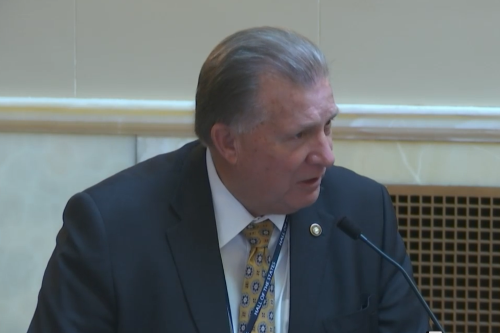
Our sources believe that the lobbyists behind Utah S.B.199 were paid by the Utah CBB. The website of the Utah CBB says “We are proud of our 15-year spotless record with the FDA”. In fact, the Utah CBB received an FDA Warning Letter in 202116. The bank’s founder, Eliott Spencer, PhD, has claimed that Utah CBB has treated 100,000 patients with no adverse events. Such a high cumulative release rate from a single bank of perinatal blood and tissues, when compared to the annual rates at which cord blood and birth tissue go into approved treatments, suggests that Utah CBB is probably releasing a lot of products via commercial stem cell clinics17,18.
Collectively, the fragments of information that we have suggest that the business motivation behind Utah S.B.199 is to recruit more doctors to provide cell therapy under contract with biobanks in Utah. Remember that the end of the bill provides a list of certifying agencies and says that doctors under contract with an institution accredited by one of them do not have to provide any disclosure to patients. It is worth checking which entities in Utah have been accredited by these organizations. One named organization is The Blood and Marrow Transplant Clinical Trials Network (BMT CTN). They coordinate data from clinical trials with blood stem cells; they do not accredit any institutions. Two organizations were named which provide accreditation programs for cord blood banks and cell therapy; these are the Foundation for the Accreditation of Cellular Therapy (FACT) and the Association for the Advancement of Blood and Biotherapies (AABB). Very strangely, this bill never mentions the American Association of Tissue Banks (AATB), which is the proper agency to accredit a bank of placenta tissue. The final option is to be certified by “an entity with expertise regarding stem cell therapy as determined by the division.” The division is not defined within the bill, but the index of the Utah code identifies it as the Division of Professional Licensing within the Department of Commerce19. Thus, any business or professional that is licensed in Utah could potentially serve as the division, it is not a quality accreditation.
The only entity in Utah which has quality accreditations relevant to placental tissue is the University of Utah in Salt Lake City. They are accredited by AATB for birth tissue banking and they are accredited by FACT to treat cancer patients at Huntsman Cancer Institute and Intermountain Primary Children’s Hospital20,21. There are no other biobanks in Utah that are accredited by AATB to store birth tissues or accredited by AABB or FACT to store cord blood21-23. The University of Utah was named in a lawsuit after they sold vials containing placental tissue and amniotic fluid to a physician’s assistant named Patricia Derges24. They had told Derges that the vials had been sterilized and did not contain living cells, but she turned around and sold them to patients as stem cell therapy. The Dept. of Justice convicted Derges of fraud in this case and others, but the University of Utah did not get in trouble because their product did not violate FDA policies and they clearly communicated the contents of their product24.
Utah S.B.199 creates the illusion that it is OK to break federal laws about biologic drugs in the state of Utah. Why would anybody believe this? In the United States we have a well-established precedent where marijuana has been legalized in many states over the past twenty years, including Utah, even though it is still illegal under federal drug laws25,26. This creates the perception among many citizens that it is OK to have different drug laws at the state and federal level. In fact, federal law always takes supremacy26. The reason that states can legalize marijuana and go about licensing distributors is because the federal government has chosen to exercise “regulatory discretion”, and is not attempting to enforce their marijuana laws. But the FDA has no intention of exercising regulatory discretion in the arena of biologic drugs made from living cells. Therapies with stem cells can cause serious harm if they are not subjected to proper quality controls. Peter Marks, MD PhD, head of the FDA’s Center for Biologics Evaluation and Research (CBER), has previously said in the context of approving COVID vaccines, “I could not stand by and see something that was unsafe or ineffective that was being put through … You have to decide where your red line is, and that's my red line”27.
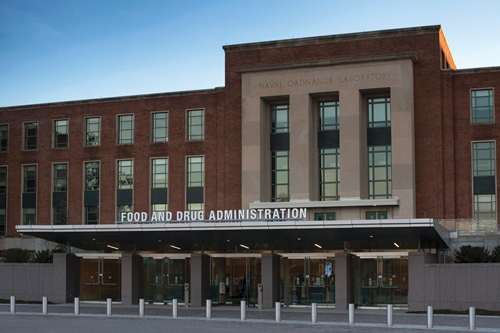
Contrary to popular belief, the federal government is not powerless to stop doctors offering illegal stem cell therapies, it just moves very slowly, like a battleship. Doctors do get prosecuted and penalized. Under federal law, it is illegal for a doctor to provide a patient with a drug that is “misbranded”28. Representing a drug as having FDA approval when it does not have FDA approval is an example of misbranding. In Utah, representing that FDA approval does not matter when it does matter may be considered a form of misbranding. Doctors found guilty of misbranding a drug are subject to penalties not to exceed a year in prison and a fine of $100029. That may not sound like much, but if the Dept. of Justice decides to wrap the misbranding into a bigger lawsuit around the doctor’s business practices, and especially if interstate commerce is involved, then the penalties can escalate dramatically. In April 2023, a medical doctor named Audrey Arona was found guilty of misbranding for selling a hormone from the human placenta as a weight loss drug, and she was ordered to forfeit $65,00030. More recently, in March 2024, prosecutors won a $17 million judgement against the Stem Cell Institute of America, after three years of litigation31.
At its heart, Utah S.B.199 was written by a patient with good intentions. But instead of liberalizing state practices, this bill might backfire and cause a crackdown. Within days of its passage, Utah S.B.199 had come to the attention of two prominent cell therapy bloggers, Chris Centeno, MD, and Paul Knoepfler, PhD32,33. There is very little that Chris and Paul agree on, but they both agree that the FDA is going to come after the state of Utah32,33. After reading their blogs, we started to look into the back story to this bill. We were struck by the fact that the legislative record strongly implies that Utah state legislators did not realize what was really in this bill when they passed it. It was presented as a routine disclosure amendment and never reviewed in committee. Utah provides a video record of floor discussions in both the Senate and House, so you can literally watch how this bill was skipped over, while instead the legislators focused on generational plans for water infrastructure7,8. Utah state legislators were tricked into passing a bill that sets a precedent and thrusts the state of Utah into battle with the federal government. Are government officials in Utah willing to spend their state resources defending this law?
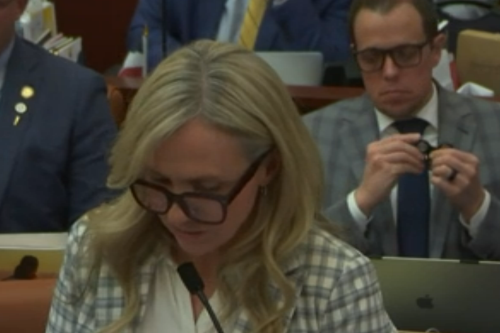
This foundation is a staunch supporter of therapy with placental tissue and other perinatal cells and tissues, provided they are given in an environment that puts patient safety first. There are still many patients out there who are seeking access to therapies containing placental tissue and other perinatal cells and tissues. There is a groundswell of frustration among patients and providers that the formal pathway to approval of regenerative medicine products is long and expensive. The Perinatal Stem Cell Society has advocated that the US should adopt federal regulations that would expedite patient access, similar to the Japanese Act on the Safety of Regenerative Medicine (ASRM)34. The Perinatal Stem Cell Society has also offered to work with stakeholders to set up a training program for health care providers who offer stem cell therapy under the new Utah law, so that their certification is something more substantial than just being licensed to practice in Utah. Between 1 May 2024 and whenever the FDA shuts down Utah S.B.199, there may be a gold rush of stem cell clinics setting up practice in Utah and indiscriminately treating patients. This could lead to a big scandal if one or more patients have serious adverse events, or if a patient dies. For example, excessive intravenous dosing with placental cells can cause a thromboembolism, and health care providers who are not aware of that danger and not prepared to deal with it are putting patients at risk35. For the safety of everyone who seeks cell therapy treatment in Utah, we hope that the authorities in the state wake up, pay attention to what they launched, reconsider their votes, and/or at the very least set up a state agency to protect patients at stem cell clinics.
References
- Utah State Legislature. Placental Tissue Amendments. 2024 General Session. Bill Text.
- Verter F. Cellsure Brings Disruptive Innovation to the Banking of Stem Cells. Parent's Guide to Cord Blood Foundation Newsletter Published 2019-07
- Hindenburg Research. Predictive Technology: 95%+ Downside on CEO and Former Chairman’s Past Securities Fraud Allegations, Acquisitions That Reek of Insider Self-Dealing and Dubious “Miracle Cure” Sales Tactics. Report. Published 2019-07-11
- Utah State Legislature. S.B. 199 Placental Tissue Amendments. Hearings/Debate.
- Utah State Legislature. S.B. 199 Placental Tissue Amendments. Committee Hearings. House Health and Human Services Committee. Minutes.
- Utah State Legislature. S.B. 199 Placental Tissue Amendments. Committee Hearings. Senate Health and Human Services Committee. Minutes.
- Utah State Legislature. S.B. 199 Placental Tissue Amendments. Hearings/Debate. Senate Floor Audio.
- Utah State Legislature. S.B. 199 Placental Tissue Amendments. Hearings/Debate. House Floor Audio.
- Associated Press. Utah's new social media law means children will need approval from parents. NPR Published 2023-03-24
- Rascoe A, Miller S. A new Utah law led PornHub to ban access to its site for everyone in the state. NPR Published 2023-05-07
- Seariac H. What Billie Eilish has to do with Utah’s porn law. Deseret News. Published 2023-10-10
- Seariac H. This Utah lawmaker passed the porn age verification law. Now he’s taking on smartphone filters for obscene material. Deseret News Published 2024-01-23
- Fabrizio D. Ex-Mormons And Psychedelics. RadioWest Published 2021-02-26
- Levenson MS. Mormon Bishop And Former GOP Utah Rep. Champions Ayahuasca After Faith-Affirming Psychedelic Experience. Marijuana Moment. Published 2022-08-19
- McKellar K. Utah Legislature passes bill to codify state version of Religious Freedom Restoration Act. Utah News Dispatch. Published 2024-02-22
- U.S. Food & Drug Administration. Utah Cord Bank LLC dba Utah Cell Bank. FDA Warning Letter. Published 2021-08-10
- Health Resources and Services Administration (HRSA). Fiscal Year 2021 Annual Progress Report on the C.W. Bill Young Cell Transplantation Program and National Cord Blood Inventory Program. Report to Congress.
- Tibbot T, Verter F. What do they do with all those placenta donations? Parent's Guide to Cord Blood Foundation Newsletter Published 2023-12
- Utah Code Index. 58-1-103. Division created to administer licensing laws. Effective 2022-05-04
- Foundation for the Accreditation of Cellular Therapy. Search for a FACT Accredited Organization. [FACT Cellular Therapy in Utah] Accessed 2024-04-01
- American Association of Tissue Banks. Accredited Bank Search. [AATB Birth Tissue in USA] Accessed 2024-04-01
- Association for the Advancement of Blood & Biotherapies. Cellular Therapy Facilities. AABB web pages. Accessed 2024-04-01
- Foundation for the Accreditation of Cellular Therapy. Search for a FACT Accredited Organization. [FACT Cord Blood in USA] Accessed 2024-04-01
- Dept. of Justice. Former State Lawmaker Sentenced for COVID-19 Fraud Scheme at Springfield Health Care Charity. Press Release. Published 2023-02-28
- Marijuana Policy Project. How can states legalize when the federal government prohibits it? Policy. Accessed 2024-04-01
- Nelson C, & Roosevelt K. National Constitution Center. The Supremacy Clause. Common Interpretation. Accessed 2024-04-01
- Levine D, Taylor M. Exclusive: Top FDA official says would resign if agency rubber-stamps an unproven COVID-19 vaccine. Reuters. Published 2020-08-20
- Cornell Law School. Legal Information Institute. 21 U.S. Code § 331 - Prohibited acts. U.S. Code. Accessed 2024-04-01
- Cornell Law School. Legal Information Institute. 21 U.S. Code § 333 - Penalties. U.S. Code. Accessed 2024-04-01
- U.S. Dept. of Justice. Georgia Doctor Pleads Guilty to Distributing Misbranded Weight Loss Drug Product. Press Release. Published 2023-04-24
- Centeno C. Stem Cell Institute of America Loses FTC Case. Regenexx blog. Published 2024-03-28
- Centeno C. Placental “Stem Cells” and The State of Utah vs the FDA. Regenexx blog. Published 2024-03-03
- Knoepfler P. Utah stem cell law OKs non-FDA approved placental cell drug therapies likely sparking conflict. The Niche blog. Published 2024-03-05
- Takashima K, Morrison M, Minari J. Reflection on the enactment and impact of safety laws for regenerative medicine in Japan. Stem Cell Reports Perspective. 2021; 16:1425-1434.
- Moll G, Ankrum JA, Olson SD, Nolta JA. Improved MSC Minimal Criteria to Maximize Patient Safety: A Call to Embrace Tissue Factor and Hemocompatibility Assessment of MSC Products. Stem Cells Translational Medicine. (2022) 11(1):2–13.

